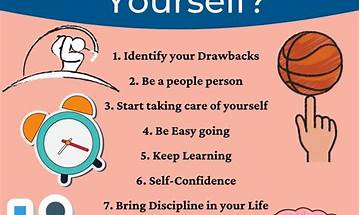Gift of Life: If the countdown to life begins, how will you spend it?

Highlights of this article:
If life is numbered, how can I spend my last time with my lover?
If the other half leaves first, how can we face loneliness calmly and heal sadness?
Facing the life of only one person, how to live meaningfully to the end?
Wednesday
view
The full text is 4285 words and the reading time is 11 minutes.
Death is a life problem that we all don't want to talk about but can't avoid, and it is also the life topic of Aaron, a master of existential psychology, in his later years. The frontispiece of The Gift of Life is full of words, which speaks to the truth of death;
Death is the best gift of life; Sadness is the price we pay for brave enough to love. The fuller you live, the more comfortable you will die.
From a 15-year-old boy who was destined for life at first sight to an 88-year-old man who stayed together, Aaron and Marilyn walked hand in hand for 73 spring and autumn periods. He once wrote affectionately in A Day of Floating Life:
"To Marilyn, my beloved wife who has lived with me for more than 60 years, we will be together for a long time." Unexpectedly, Marilyn left before him.
Aaron used to be a therapist, bringing comfort to countless patients to relieve their anxiety before death; This time, however, he turned to be a party and felt the pain of bereavement alone.
In 2019, 87-year-old Marilyn was diagnosed with multiple myeloma. When she learned that it was a very dangerous and terminal disease, during a walk, Marilyn hoped to co-write the last book of her life, The Gift of Life, with Aaron, telling how the husband and wife faced her fatal illness and the impending death, and even left each other a last gift of love.
We have all faced or will face the life difficulties of aging, disease, death and sadness. How to face these life problems that we don't want to mention but can't avoid? The Gift of Life is the best textbook and answer.
In the book, Aron looks back on the hard time of Marilyn's illness for nearly a year with a patient with heart and balance problems:
From finding out the result to facing the end, from ineffective chemotherapy to palliative care to hospice care, from approaching the end to the arrival of death, until Marilyn died without regrets, Yalong and his wife recorded the complete mental journey of death with incomparable sincerity, and how Yalong came out of grief step by step after losing his beloved wife.
Let's relive this shocking experience again, and relive their 73-year-old life story of how to face aging and death, from a young boy to an octogenarian, from a deep love to a loss of my love forever. I believe it will bring us different life meanings today.
Marilyn who died peacefully.
Although both are immigrant families, Marilyn and Aron have very different growing experiences.
Marilyn's father Samuel Koniko came to the United States in the late adolescence, and then met Marilyn's mother Celia who immigrated to the United States from Poland. Like Aaron's father, she also opened a small shop in Washington, D.C..
In order to better adapt to American culture, Marilyn's father settled in a well-educated and safe place in Washington, so Marilyn was born and raised in a safe and pleasant place.
Like most middle-class children in the United States, Marilyn went to a lecture school and always lived with recognition and encouragement no matter what she did. Her life was not threatened or persecuted by anti-Semitism, and she lived a peaceful and prosperous life.
Aaron's family grew up in a narrow space above a small shop and didn't move out of the dangerous and messy street until they were 14 years old. The shadow of childhood life has caused indelible trauma to Aaron's body and mind.
Freud, Klein, and Balbi all concluded that early trauma, even dating back to the pre-lingual period, often caused indelible losses. For adults, even in the later years of life, these early injuries will still have an indelible impact on comfort, freedom and self-esteem.
Therefore, near the end of her death, Marilyn deeply confessed to Aaron, who was deeply worried and anxious: "I have no regrets in this life. For an 87-year-old woman, this is not a tragedy."
Family of origin's happiness gave Marilyn a full sense of security, and also gave her the background to cope with life.
The ancient Roman writers Seneca and Aurelius believed that the existence of any individual in the universe is regarded as two eternal darkness, and the best way to live is to accept death.
After 10 months of illness and treatment, Marilyn has been able to accept death and even look forward to it: the dose of chemotherapy is too small and the treatment is ineffective; Increasing the dose leads to stroke again; Immunoglobulin therapy, which is effective for 2/3 of the patients, didn't work either. The severe back pain caused by nausea, blepharitis and turning over from time to time made Marilyn miserable.
Fortunately, Aaron is always with me.
Marilyn was deeply satisfied by his loyal and firm love. During the long life, they had children, traveled around, wrote books, admired and admired each other, and honed and achieved each other. Marilyn not only led the growth of Aron's spirit, but also healed Aron. Their lives radiate bright and charming light in their mutual blending.
Sweet love makes Marilyn give birth to more strength and love, and face life and death calmly.
Besides family of origin and intimate relationship, Aron's works also play an important role in establishing Marilyn's view of death.
She wrote in the book:
The two concepts mentioned in Owen's works have a great influence on how I look at death. One is about life that has not been fully lived. I am lucky to die without regret, so I can face death more easily;
Another thing that always hovers in my mind is Nietzsche's "Death at the Right Time" mentioned in Owen's works.
Is it really meaningful to continue to suffer great physical pain in order to prolong life? Living for a long time is not the best state of life, but it is most important not to regret each other. Therefore, Marilyn made a decisive decision and hoped to die painlessly with the help of a doctor.
Robert Harrison, a professor of humanities at Stanford University, called death the "pinnacle" of life. He meant making peace with God and accepting the final ceremony. Marilyn believes that for a non-religious believer, if he can live his best, express his love to them and accept his fate gracefully, maybe the moment of death is his "peak".
Aaron who lost his beloved wife.
Marilyn left, leaving Aaron with endless sadness and thoughts.
I always thought that Aron was a god-like existence in the psychological field, and any problem could be calmly faced, but I never thought that he was also a living person. He had to go through a long process to perceive, experience and then recover bit by bit.
This difficult journey took Aron 125 days.
one
Immerse in sorrow
After Marilyn's death, Aaron's memory declined rapidly, and the funeral was all done by the children. At this time, Aaron only felt tightly wrapped in a huge and boundless emotion. He only repeated the same sentence over and over again: I will never see her again!
Christmas is still spent with the whole family, but there is no laughter in the past; When TV saw the wonderful scene, it instinctively turned to share it with Marilyn, only to find that people were gone, and wherever they went, Marilyn was always in front of them.
Two
Deny leaving
After 43 days, life is still full of her shadow. Aaron had to flush the back of Marilyn's photo out and the front against the wall. Even so, he will turn her over and look at her carefully. She is still breathtaking in the photo, as if to say, "Don't forget me ... you and me, dear, forever ..." At that moment, sadness welled up in my heart, and Aaron's cry was heartbreaking.
three
A long numbness
After 50 days, for Aaron, the feeling of numbness persisted. Children accompany him to walk, play chess, cook and watch movies together, but no matter what they do, all they can feel in a trance is numbness. Only when I am immersed in writing books and working as a therapist every day will my numbness temporarily retreat.
four
Relive one's works
After 60 days, in order to pass the empty and boring days, Aaron decided to read something.
Rereading "Schopenhauer's Treatment" written by myself many years ago brings strong and effective healing. Due to the serious decline of memory, when he reread these works, Aron could not remember the content and details at all, so reading each chapter would bring him surprises. In particular, the case that the hero's strong sexual desire became full of sexual energy in grief after losing his wife is the answer that Aaron has been looking for since he lost Marilyn. This question was made clear in the novel many years ago, although he can't remember it completely, and he had mixed feelings when he reread it.
After 95 days, I revisited A Floating Life in One Day and continued to use the books I wrote to heal my grief. The belief that Ellie, a cancer patient, faces death, her courage and the power of language recorded in the book are touching:
Life is temporary-it will always be so for everyone.
My homework is to live until I die.
My homework is to reconcile my body and love all of her, so that I can give generously and powerfully to the world based on that stable core.
Maybe I can be a pioneer in the death of friends and relatives.
I decided to be an example for the children-an example of how to die.
After 100 days, I revisited "Mom and the Meaning of Life" and continued to get healing. Aaron's life slowly recovered.
five
Writing brought Aaron back to life.
125 days later, The Gift of Life came to an end, and Aaron was full of gratitude to Marilyn: it was the writing plan of this book that kept him alive for 125 days after her death.
It was agreed that each person would write a chapter, but with the aggravation of Marilyn's illness, it was impossible to continue. In the four months after Marilyn's death, Aaron completed the following chapters alone in grief, which was both keeping his promise and self-healing.
At this point, Aaron can safely say to Marilyn, "Don't worry about me, I'm starting to return to life again."
This abyss-like sadness has gradually recovered through uncontrollable yearning, heartbreaking sadness, suffocating depression and numbness, revisiting old works and writing new ones.
What is the meaning of life?
Since all life is going to die, what is the meaning of life?
This is a question that exploded on the Internet, with 20 million views and nearly 80,000 answers.
Some netizens said that it is meaningless, just alive; Some netizens said that the meaning of life lies in maximizing one's own interests; Some netizens said that it goes without saying that living is to make money.
And Aaron's mentor, Frank, a famous American psychologist, described this:
Owen, you, as yourself, have only one life. How amazing "consciousness" is, enjoy every minute of it, and don't drown yourself in sadness and regret about what you have lost.
I think what Frank really wants to express is that the meaning of life lies in the experience of the process and cherish the present. Fill every moment, and you will grasp the whole of life.
Because, the fuller you live, the more calm you will die.
04 written at the end
Nabokov wrote in the preface of his autobiography "Speak, Memory":
The cradle rocks gently on the abyss, and common sense tells us that our existence is only a short light gap between two eternal darkness.
When I read this book, it was about 100 days since my favorite grandmother died. Immersed in the book, sometimes I am worried about Marilyn's illness, and sometimes I am full of tears for Aaron's affection. After reading it twice, I feel that my grandmother's departure has also healed a lot:
In my living habits, I saw my grandmother's old habits; In my life creed, I inherited my grandmother's belief. She didn't leave me, she left traces on me, and in this way she was extended and immortal.
In the 125 days after losing his wife, Aron struggled to recall what he had experienced:
The whole process from sadness denial to long numbness, from revisiting my previous works to coming out of sadness bit by bit made me cry several times, and I couldn't help myself.
I cried again when I brushed the end of the book.
I cry because I see how difficult it is to accept the whole mental journey of a person's death, how short life is, and how much pain it takes to fill this life. Until the end of life, we will find that all love and hate are nothing but the past.
What makes us anxious in the end is the fear of forgetting and the unknown, so if you want to die peacefully, then enrich every day and live every moment!
The meaning of life, in fact, lies in life itself. If you are in confusion, self-doubt and isolation, then live in every moment first and take everyone around you seriously. There will always be a moment when you will suddenly catch that beam of light.
There are also many friends who are confused or seeking the value and meaning of life in the Children's Travel Parents' Club. They talk to each other and heal.
Far away from home, they have become cloud friends who talk about everything because of their common pursuit-knowing themselves, relieving anxiety and better facing life and family.
Declaration: All article resources on this website, unless otherwise specified or labeled, are collected from online resources. If the content on this website infringes on the legitimate rights and interests of the original author, you can contact this website to delete it.






